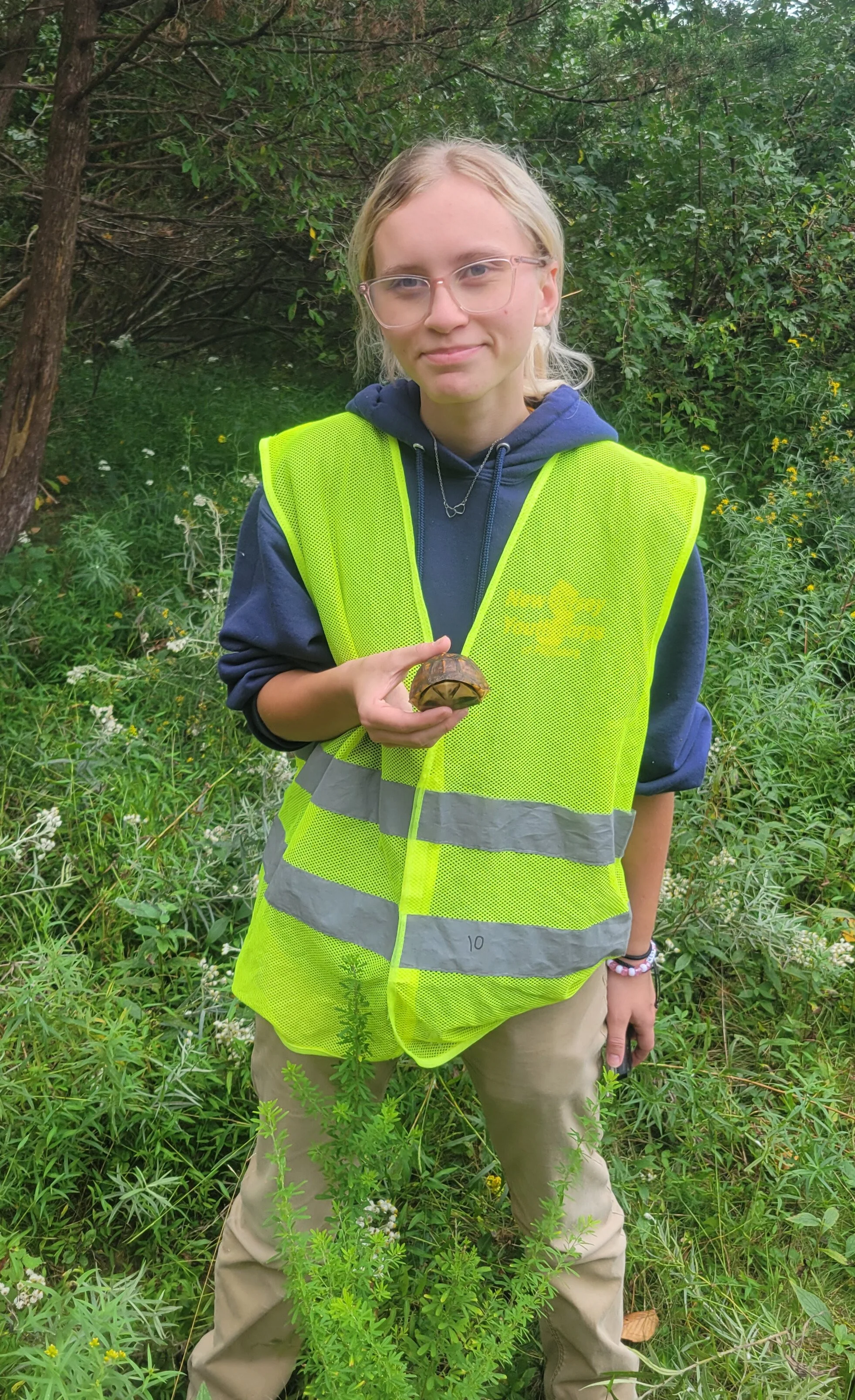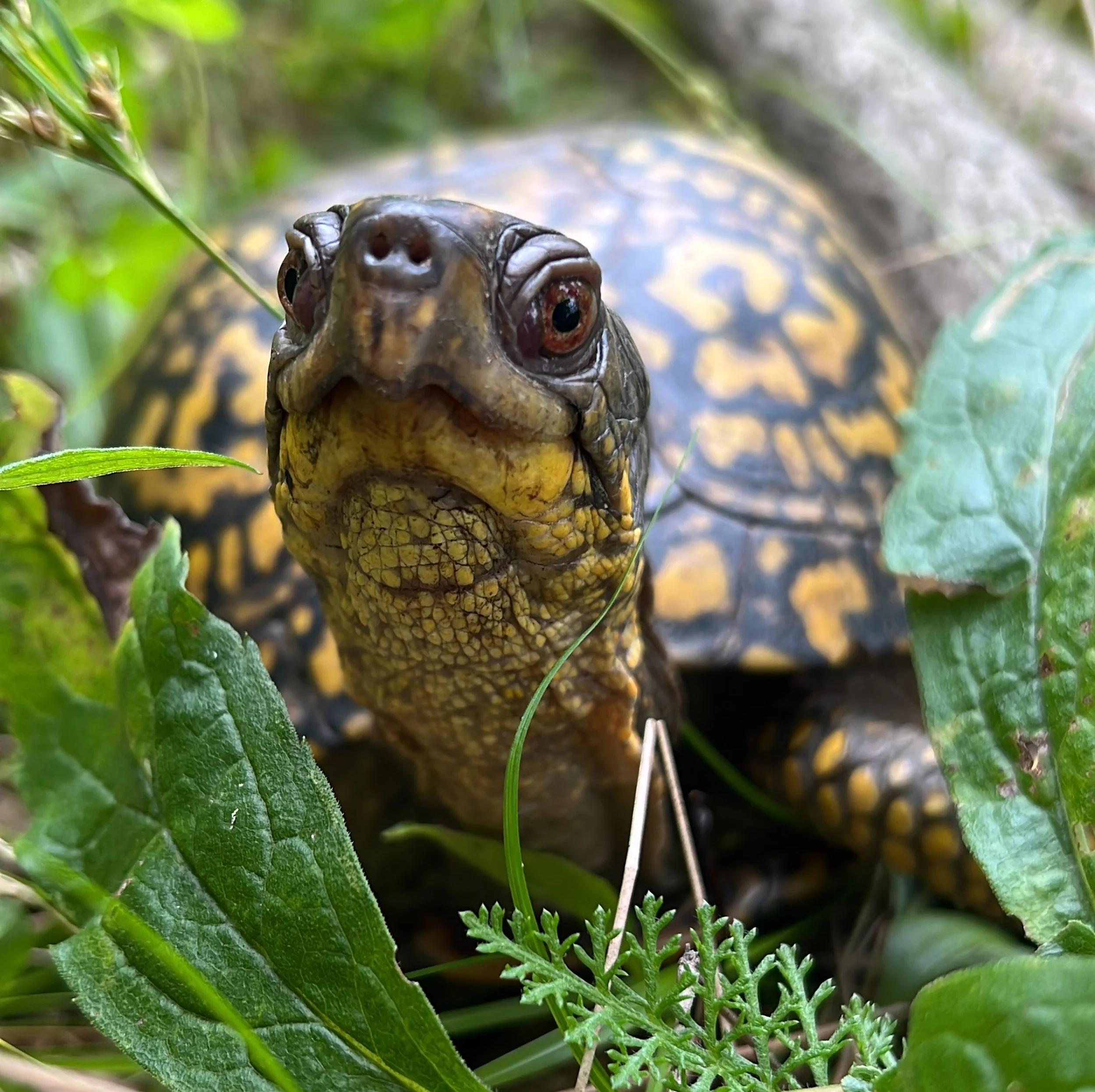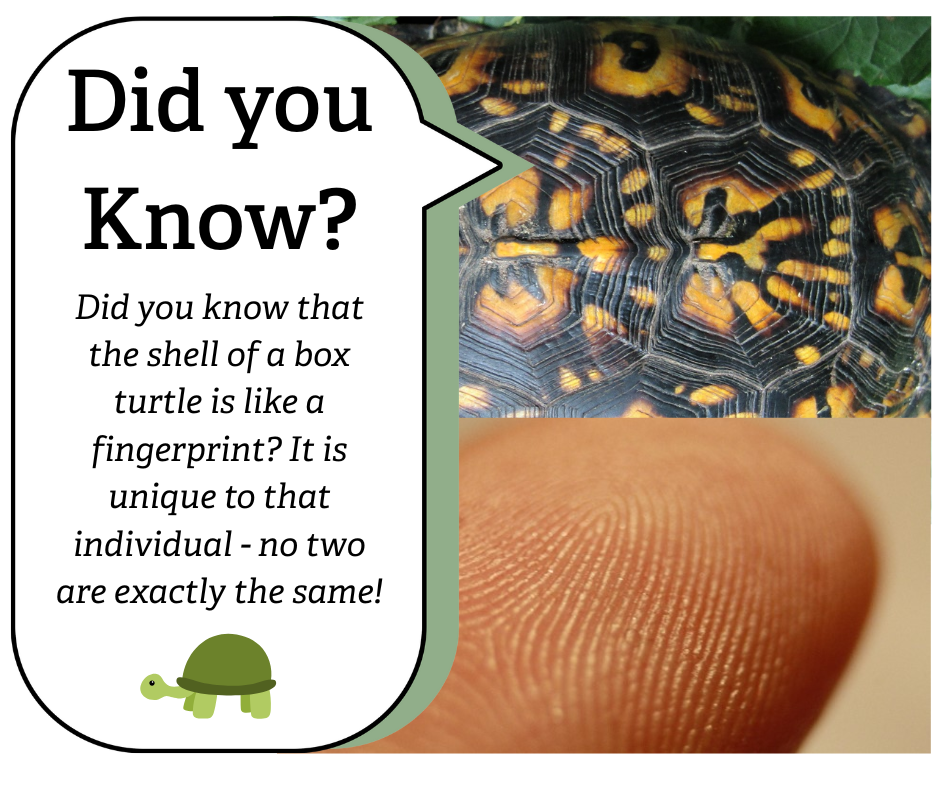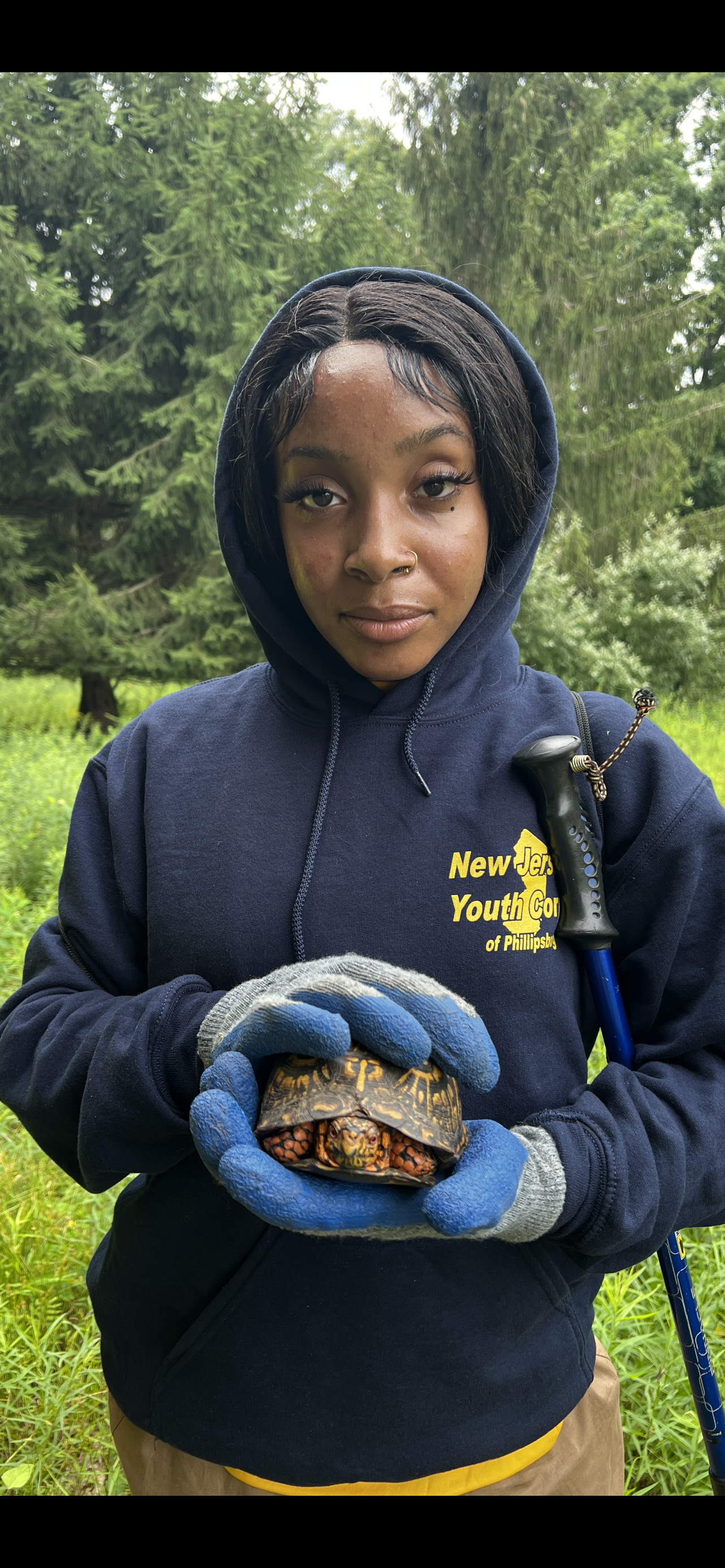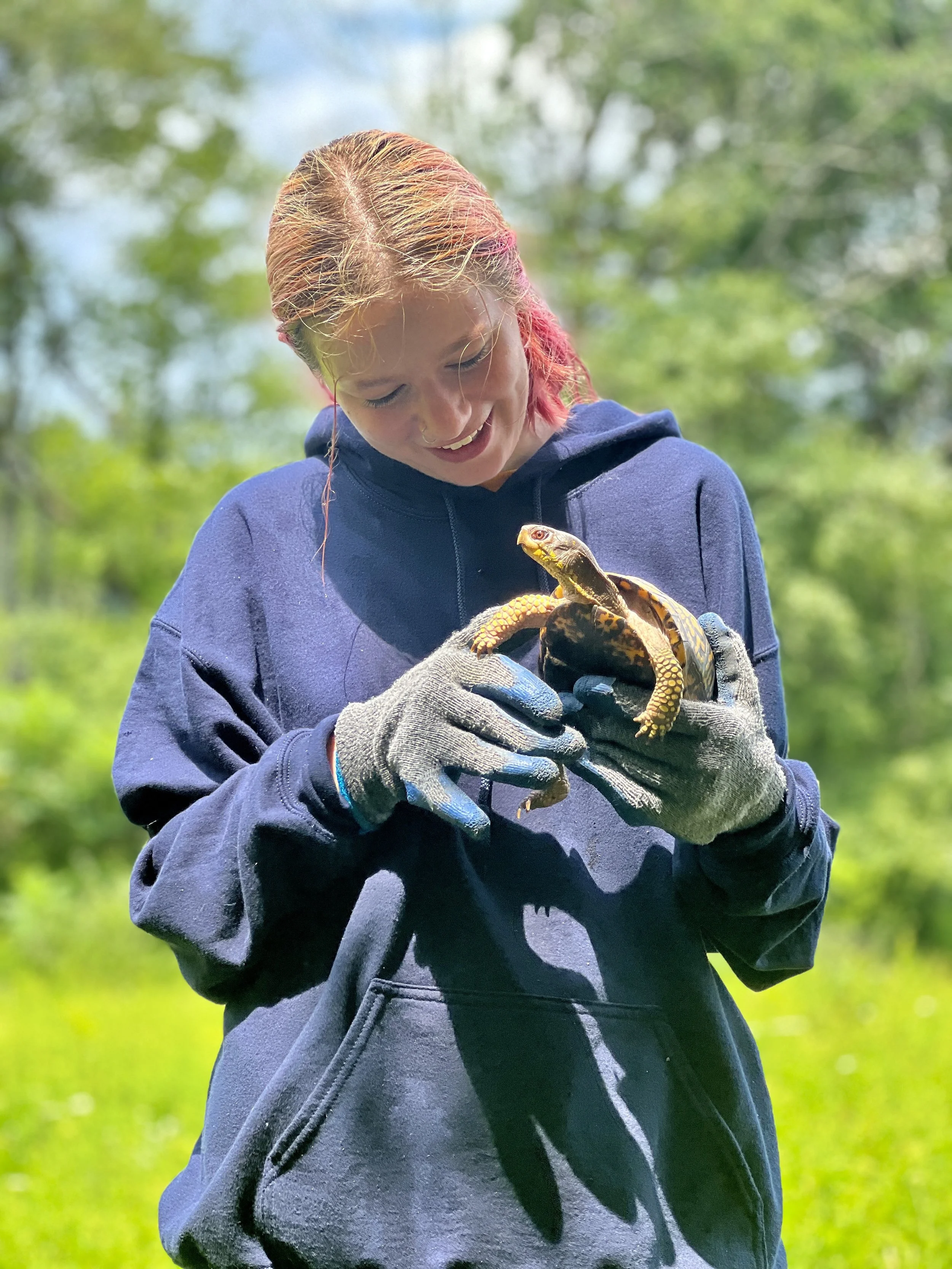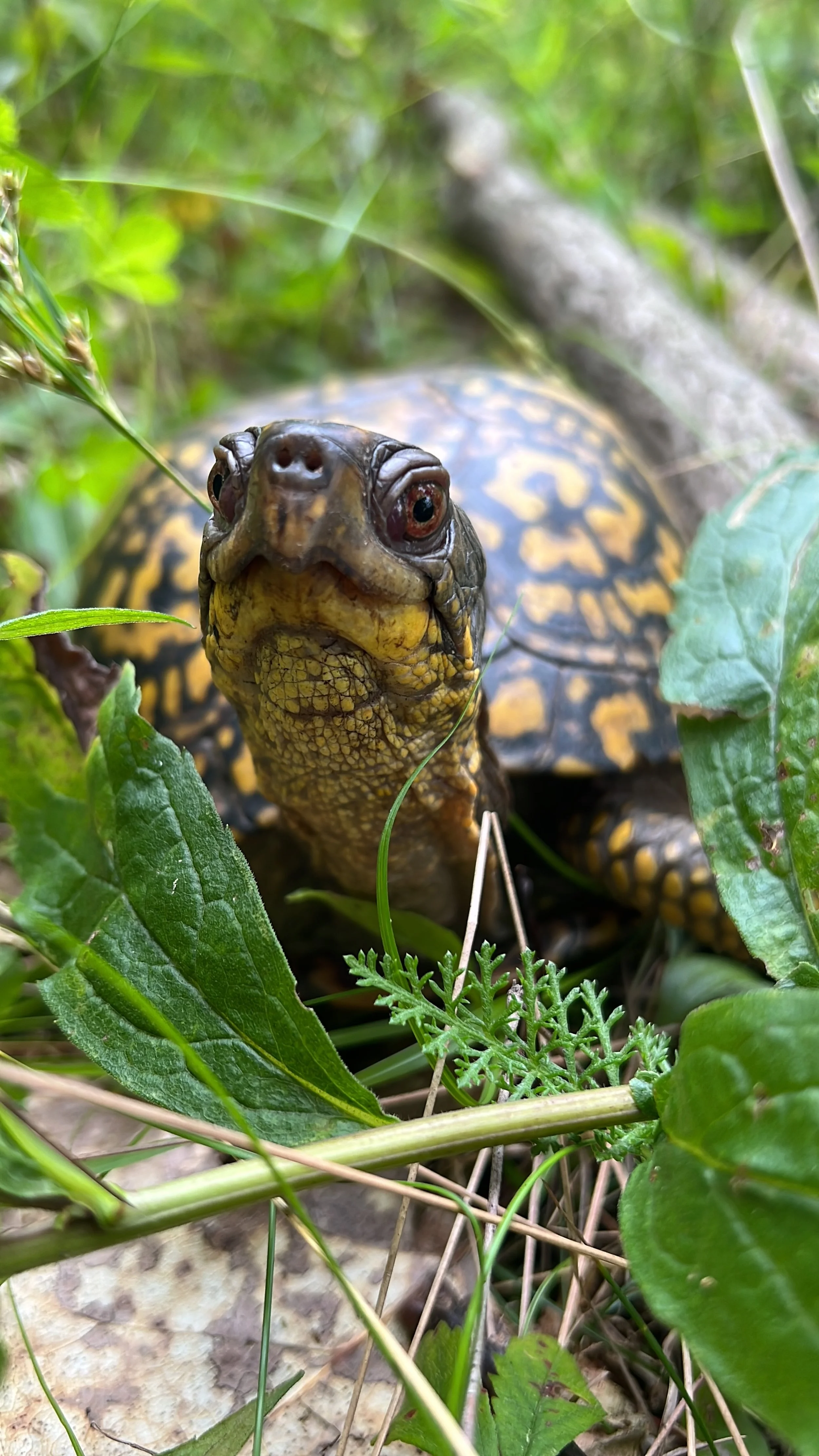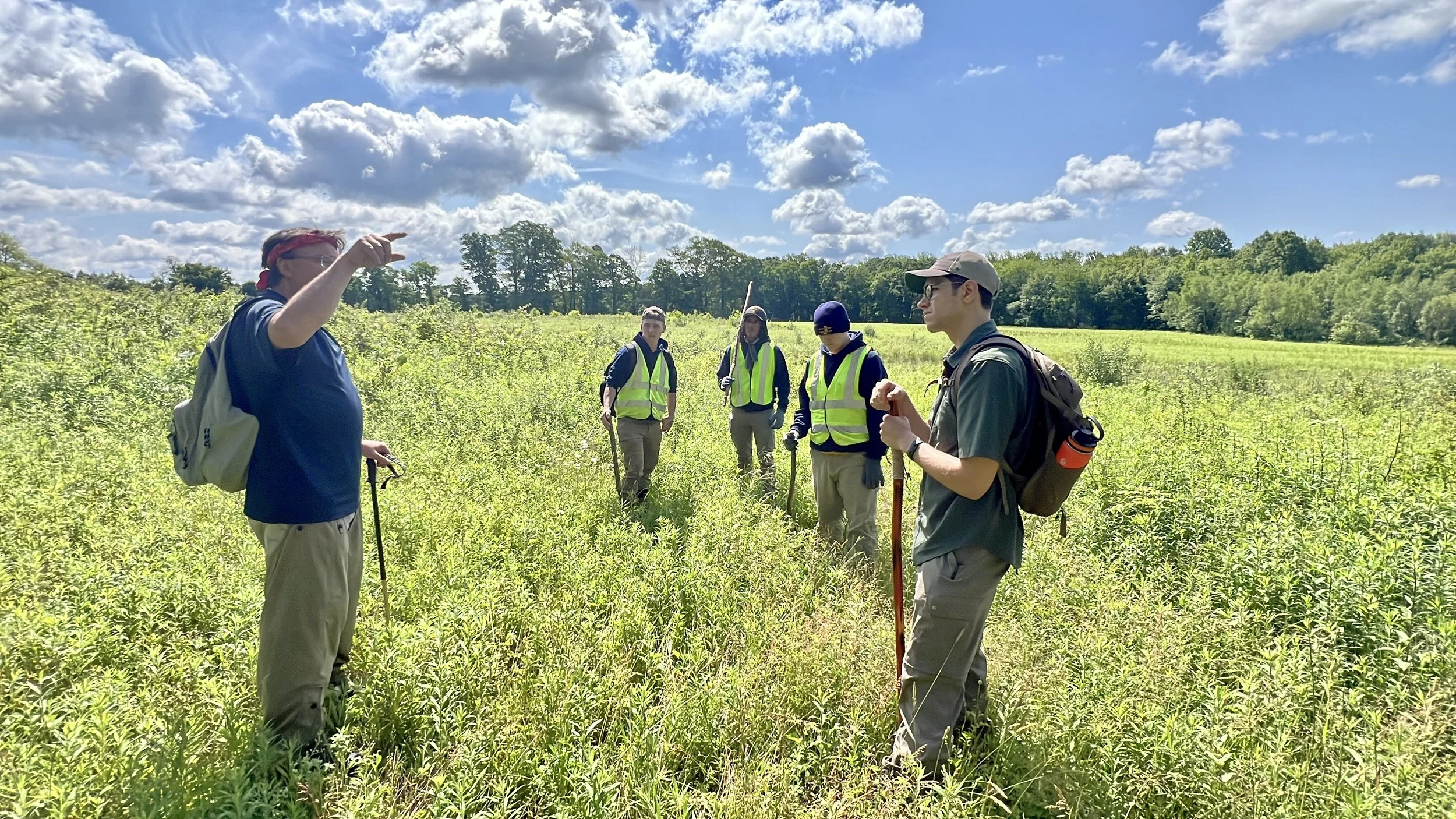Coming out of their Shells
Corpsmembers assist in the collection of actionable data for the NJ Department of Environmental Protection while pursuing their education. Corpsmembers monitor native species' health and populations by observing species in their habitats, collecting data that guide conservation, habitat protection, and regulations to sustain New Jersey’s turtle populations and ecosystems.
NJ Youth Corps of Phillipsburg celebrates #NJClimateWeek2025!
As part of the service component of their program, New Jersey Youth Corps of Phillipsburg Corpsmembers routinely survey for two listed species of turtle at Merrill Creek Reservoir. Wood Turtles are a Threatened Species in NJ and Box Turtles are a NJ Species of Special Concern due to habitat degradation and the exotic pet trade. In conservation terms, “Threatened” is one category below endangered and “Species of Concern” is a category below Threatened.
We began this aspect of our service back in 2023, when we worked with NJ Department of Environmental protection staff to help train us to know how to conduct the survey (where & when) and what data to record.
Combing through the wooded areas, fields, and stream banks of Merrill Creek’s 2,700-acre property, Corpsmembers searched for these two turtle species. Once found, Corpsmembers measured the turtle’s length, weight, and they photographed its shell (did you know that the design on the shell of a turtle is unique to that individual just like your fingerprints are unique to you?).
“Turtle surveying “Connects them (Corpsmembers) to nature, understanding that there are other organisms out there that need our help.” ”
This data collected is sent to the New Jersey Division of Fish and Wildlife where it is stored in a database. This data is stored so when Corpsmembers find a turtle that was last observed two (or even twenty!) years ago, scientists can compare measurements over time to learn a lot. Did the turtle grow more in some years than others? Are these growth rates correlated with activities thought to be threatening these species? Over time, this database is used to inform conservation efforts.
Through these ‘citizen science’ efforts, Corpsmembers then take this work experience with them back to the classroom where they study for the high school equivalency exam. The hands-on learning that occurs in the field is a good base from which to jump into a math lesson covering measurement and data analysis. Or a science lesson, where topics covered include evolution, natural selection, and ecosystems. Through these services, Corpsmembers are providing actionable scientific data to agencies while bolstering their academic skills.
Interested in learning more about Youth Corps?
Do you know a young person who would like to earn money while pursuing their high school diploma and gaining employable skills through work experiences?
Have them apply for an upcoming Youth Corps class at njycphillipsburg.com/apply-now.
